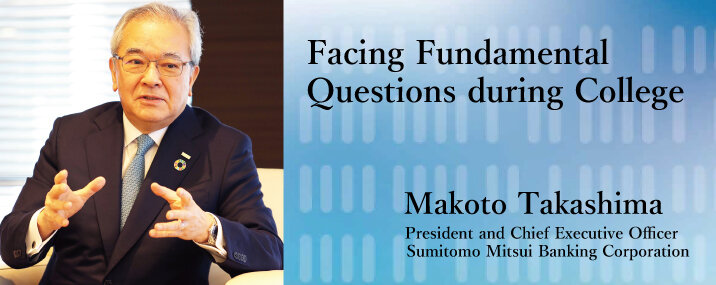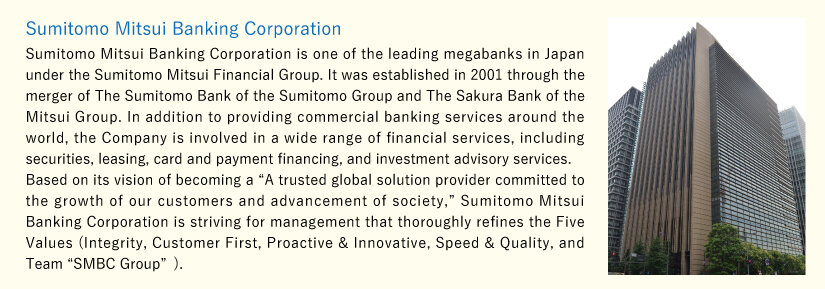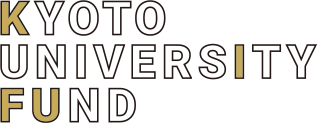Vol.25 Interview with Donors

Makoto Takashima
Born in Hiroshima Prefecture in 1958. Graduated from the Faculty of Law, Kyoto University, in 1982, and joined The Sumitomo Bank (now Sumitomo Mitsui Banking Corporation) in the same year. Served as Executive Officer of Sumitomo Mitsui Banking Corporation in 2009, Managing Executive Officer in 2012, Senior Managing Executive Officer in 2014, and Director and Senior Managing Executive Officer in 2016. Assumed current position in April 2017. Also has been serving as Director of Sumitomo Mitsui Financial Group, Inc. since June of the same year. Appointed Chairman of the Japanese Bankers Association in July 2021.

Q Would you care to share with us your college memories?
When I was a high school student, I had a strong admiration for the image of Kyoto University. I had this image of people having an anti-administration spirit and spirit of defiance of the opposition party, respecting freedom and independence, and being engaged in unique and advanced research. When I was in high school, I took entrance examinations of Kyoto University and a private university in Tokyo, but I was only accepted by the private university. Although I had completed the school's enrollment procedures, I could not give up my desire to go to Kyoto. I did not attend the university. Instead, I studied for the entrance examination on my own to try again the following year.
To be honest, my first impression upon entering Kyoto University was that it was unsophisticated. Many students commuted to school by bicycle, and since they did not take the train, they did not care about fashion. But the fact that most of the students knew what they wanted to do was just as I imagined.
I tried to be a conventional intellectual student who pursued his studies in solitude, but in the end, my intention was superficial. I became a normal Kyoto University student, skipping classes moderately in a free environment and only attending classes that interested me. In my first and second years, I was particularly devoted to the activities of the Constitution Study Group. It was there that I learned the joy of discussion and the importance of being assertive.
At that time, the majority of students in the Faculty of Law were aiming to become legal professionals, and in their third year, they switched to study mode for the bar examination. The bar examination was much more competitive than it is today, and it was not uncommon for students to stay in school and try again and again. I decided to keep trying until my 5th year, but I could not pass the bar examination, so I decided to get a job.
Q After joining The Sumitomo Bank (now Sumitomo Mitsui Banking
Corporation), is it true that in your third year, you went to the U.S.
to study abroad, and since then you have worked mostly in the
international field?
I had never imagined working overseas, so I was surprised when I received an offer to study abroad in the United States. In addition, I was on a tight schedule. The offer was made in August, and the Common English Proficiency Test was looming in October. In addition, the application deadline was in January of the following year, and the human resource department told me to go to a top-10 university, such as Harvard or Stanford. In the end, I decided to study at the University of California, Berkeley (UCB), but I think I was only able to pass the entrance examination because American universities were actively accepting Japanese students to study abroad at that time, when Japan had momentum.
In the beginning, there was no room to enjoy life at all. When I attended lectures, I did not understand what the teacher was talking about, and I had to read a large amount of literature and materials, and I had to write papers. I thought I was going to die before the first semester examinations were over.
Students from all over the world were coming to the U.S., and it was right around the time that UCB started accepting Chinese students for the first time. I remember Chinese students staying in the library and studying very hard. They must have come to UCB to study with a strong sense of mission.
Indeed, international students are representatives of their country, and Japanese students need to be able to explain about Japan and the Japanese people. And yet, when I was asked for my opinion, saying, "What about Japan?" I was unable to explain it well. I was disappointed in myself. Rather than worry about my language skills, it made me think about whether I had anything to say about Japan's history, culture, politics, and economy.
Through these experiences, my sense of values had to be revised, and I realized that to be an international person is to have a subject and something to say about it. Since then, I have been working in the international field, and I think that my study abroad experience has helped me to develop the mindset that it is important to always have a critical perspective, to be able to think for myself, and to be able to argue.
Q Did your overseas experience help you find any value and strength
in Kyoto University?
I later realized that the aforementioned elements necessary for an international person are the mindset that Kyoto University values, the image of human resources that it aims to cultivate, and also the strength of Kyoto University.
The location of Kyoto is also important. Kyoto is full of history and culture to talk about, so it is easy to build a Japanese identity. Above all, one of the main characteristics of Kyoto is that it maintains a perfect balance between tradition and innovation. This is only possible with an understanding of tradition. While Kyoto respects tradition, what it aims for is extremely innovative. Kyoto companies are a typical example. Kyoto companies are developing cutting-edge technology based on traditional techniques and expanding globally while remaining rooted in Kyoto. Kyoto companies have a solid base to appeal to the world.
I deeply regret not fully exploring Kyoto during my student days despite leading life in such a city and university. I wish I had not only visited shrines and temples but also spoke with various people, read books, and been deeply exposed to history and culture.
Q Is there a message you want to leave Kyoto University and its students
with in this 125th anniversary year and after?
What I would like students to do during college is face the fundamentals. The fundamentals are not just a philosophical discussion of what it means to be human. The fundamentals are what we call "principles." Only when there is a perspective from the principles can there be a solution, innovation, and change. Laws have a background in the culture and society of their country, and understanding that background will help you interpret events and think in ways that are necessary to solve cases.
The broader the field of study, the higher the summit. For example, Nobel laureates have a broad wisdom that allows them to rise to great heights in their field of expertise. I believe that foreign business leaders have depth because they have a wide range of knowledge in liberal arts and fields other than business, and that is why they are able to come up with outstanding ideas and have management skills.
Our foundation is created by reading the classics and other books, learning the wisdom of our ancestors, and exploring the fundamentals. There is no other place more appropriate than Kyoto University to create the beginnings of human depth. I look forward to seeing Kyoto University students build a broad and strong foundation to aim for a higher summit in the future.
(Interviewed in August 2021)

